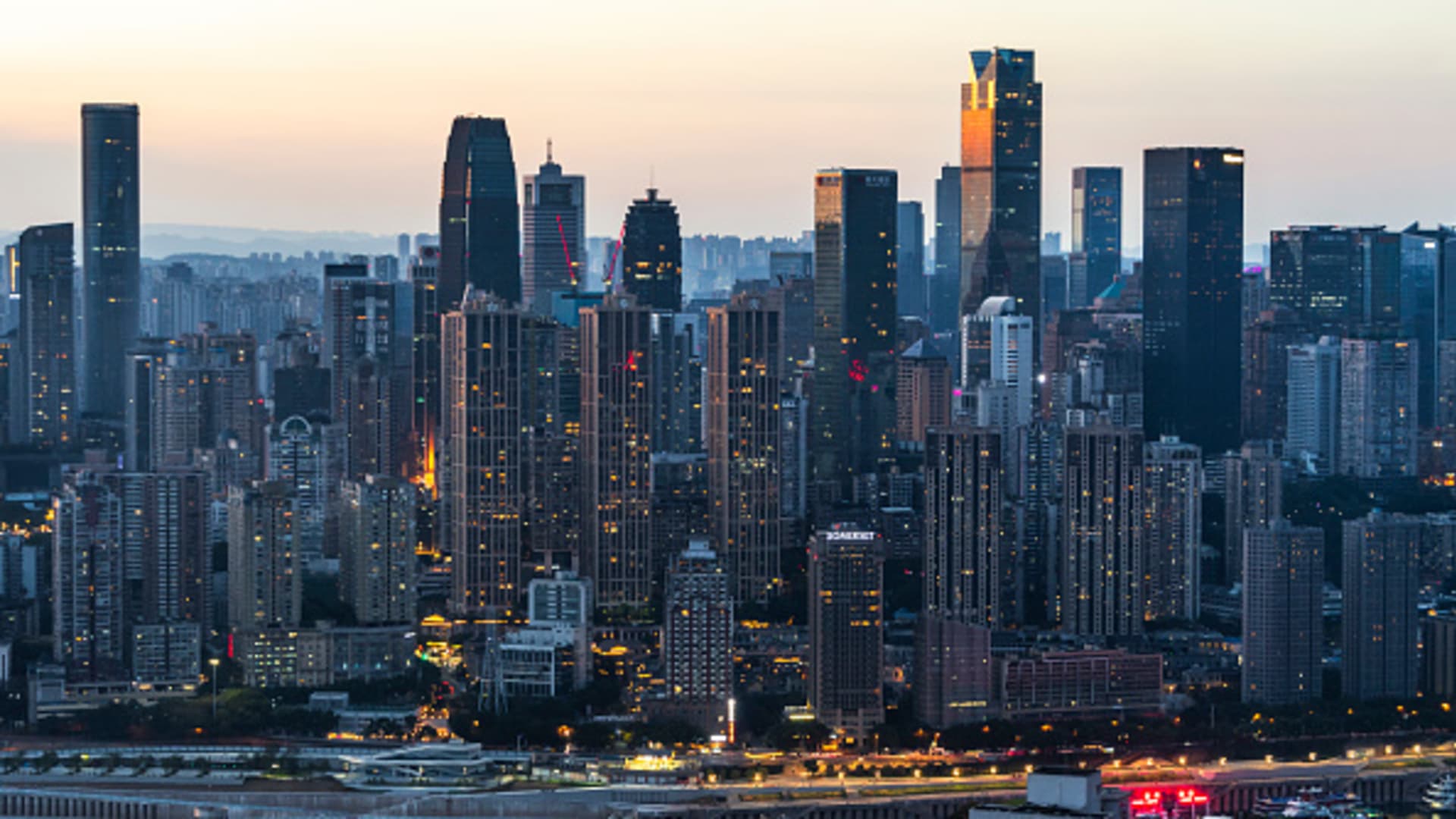BEIJING — China reported data Friday that showed a pickup in growth in August from the prior month. The data also came in above expectations across the board.
Retail sales grew by 5.4% in August from a year ago, the fastest since the January-February period this year, according to figures released by the National Bureau of Statistics. August retail sales topped a Reuters forecast for 3.5% growth.
Among the overall encouraging data, retail sales posted the biggest surprise, boosted by passenger car sales and helped by comparison to low growth last August, pointed out Hao Zhou, chief economist at Guotai Junan International. Retail sales had risen by 2.5% year-on-year in August 2021.
This year, catering sales recovered from a Covid-induced slump to rise by 8.4% in August from a year ago, while autos and food sales also grew significantly. That helped retail sales for the year through August grow by 0.5% from a year ago.
Cosmetics and home furniture were among the few categories showing a sales decline in August from a year ago.
Online sales of physical goods rose by 12.8% in August from a year ago, faster than the 10.1% growth in July, according to CNBC calculations of official data.
Industrial production rose by 4.2% in August from a year earlier, beating the 3.8% increase estimated in a Reuters poll of analysts. Despite a year-on-year decline in major categories such as cement and steel, autos again proved to be a bright spot, with passenger car production surging by 33%.
Fixed asset investment for the first eight months of the year rose by 5.8%, above the 5.5% increase forecast by Reuters. Investment in manufacturing grew the most, up by 10% from the year-ago period. Infrastructure investment grew at a slightly faster pace than in July, on a year-to-date basis.
Real estate investment for the year declined further as of August, down by 7.4% from the year-ago period versus a 6.4% decline reported for the year as of July.
A demand problem
On Friday, National Bureau of Statistics spokesperson Fu Linghui told reporters more than once that insufficient domestic demand is a significant problem. He pointed to more infrastructure and manufacturing investment as ways to support growth.
Fu also said that Covid outbreaks and extreme weather since August affected construction of some projects, slowing investment growth.
The unemployment rate for young people ages 16 to 24 edged lower to 18.7% in August. It remained far higher than the overall unemployment rate in cities, which was 5.3% in August, down slightly from the prior month.
China’s consumer price index edged down from two-year highs to show a 2.5% year-on-year increase in August. But excluding food and energy, the index only rose by 0.8%, again reflecting lackluster demand.
The slump of the massive real estate sector has also weighed on demand. A few weeks earlier, Chinese developer Country Garden described the property market has having “slid rapidly into severe depression.”
Fu said stabilizing the real estate market needed more work, and that the industry was still in a “downward period” despite some positive changes, according to a CNBC translation of the Mandarin remarks.
China’s economy has remained under pressure due in part to Covid controls, which notably stranded tens of thousands of tourists in the tropical island of Hainan in August.
The summer month was also marked by extremely hot temperatures in parts of China, prompting temporary power rationing in some regions.
“Generally speaking, the national economy withstood the impacts of multiple unexpected factors and sustained the momentum of recovery and growth with major indicators showing positive changes,” the National Bureau of Statistics said in a press release. “However, we should be aware that the international environment is still complicated and severe and the foundation of domestic economic recovery is not solid.”
Export growth slowed to 7.1% year-on-year in August, signaling that driver of Chinese growth might be waning as global demand falters. Domestic demand remained weak, with imports only rising by 0.3% from a year ago.
“We expect the boost from exports may continue to wane in the next several months due to the high-base effect and the softening global demand,” said Bruce Pang, chief economist and head of research for Greater China at JLL.
He said policy should focus on boosting domestic demand, primarily by coordinating fiscal and industrial policies, while monetary policy plays a supporting role. “We think massive additional stimulus will not be around the corner, but fine-tuning and follow-up of existing policy measures,” he said.
Correction: This story has been updated to reflect that infrastructure investment grew at a faster pace in August than in July, and that real estate investment declined by 6.4% in the first seven months of the year from a year ago.
